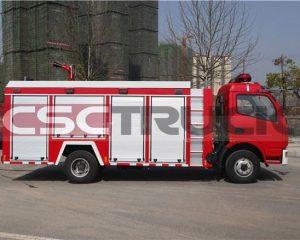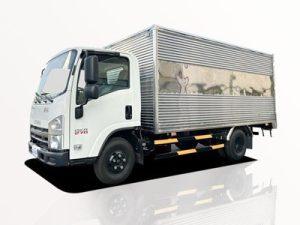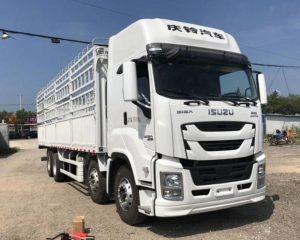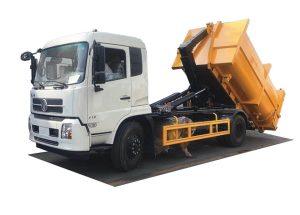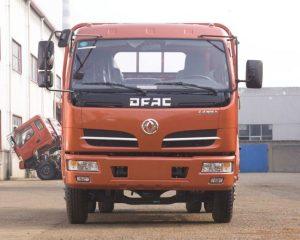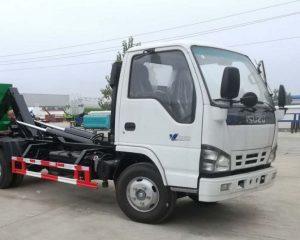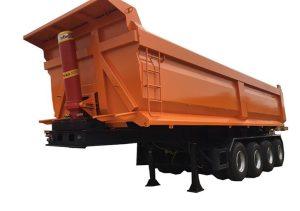Monday to Saturday - 8:00 -17:30
Ultimate Guide to Roll Off for Sale: Everything You Need to Know
When it comes to efficient waste management, roll-off containers are invaluable. Their versatility and capacity make them a popular choice for both residential and commercial projects. This comprehensive article will guide you through everything related to purchasing roll-off containers for sale, including types, sizes, costs, tips, and frequently asked questions.
Understanding Roll Off Containers
Roll-off containers are large, open-top bins that can be transported by a special truck equipped with a roll-off system. They are commonly used for disposing of waste, debris, and other materials from renovation projects, construction sites, and significant cleanouts.
How Roll Off Containers Work
These containers are designed to be placed on a flatbed truck, rolled off at the desired site, and picked up when full. They come in various sizes and can handle diverse types of waste, making them highly adaptable to different needs.
Types of Roll Off Containers
- Standard Roll-off Containers
- Compaction Roll-off Containers
- Open-top Roll-off Containers
- Closed-top Roll-off Containers
Factors to Consider When Buying Roll Off Containers
When purchasing roll-off containers, several factors need consideration to ensure you select the right type for your specific needs.
Size and Capacity
Roll-off containers come in various sizes, generally measured in cubic yards. Understanding your project scale will help determine the appropriate size. Common sizes include:
| Size (Cubic Yards) | Typical Uses |
|---|---|
| 10 | Small home projects |
| 20 | Medium renovations |
| 30 | Large construction sites |
| 40 | Commercial projects |
Material Type
The type of material you will be disposing of is also crucial. Common materials include:
- Construction debris
- Household waste
- Yard waste
- Metal
Weight Limitations
Different containers have different weight limits, often dictated by local regulations. It is essential to check these limits to avoid extra fees or problems during pickup.
Costs Associated with Buying Roll Off Containers
The price of roll-off containers varies based on multiple factors, including size, type, and the company you choose.
Average Price Ranges
Here is a breakdown of the average costs associated with different sizes of roll-off containers:
| Size (Cubic Yards) | Average Cost |
|---|---|
| 10 | $300 – $500 |
| 20 | $350 – $600 |
| 30 | $400 – $700 |
| 40 | $450 – $800 |
Additional Fees
In addition to the initial cost of the roll-off containers, you may encounter the following fees:
- Delivery and pickup fees
- Overweight charges
- Extended rental fees
Where to Find Roll Off Containers for Sale
There are various sources to purchase roll-off containers:
Online Retailers
Many online platforms specialize in selling new and used roll-off containers, providing comparative pricing and specifications.
Local Suppliers
Check local waste management companies or equipment rental shops as they often sell or rent out roll-off containers.
Auctions and Classified Ads
Keep an eye on auctions and online classified ads for used roll-off containers at discounted prices.
Practical Tips for Purchasing Roll Off Containers
Research Suppliers
Read reviews and get recommendations for reputable suppliers to ensure that you are purchasing quality equipment.
Check for Warranty and Returns
Make sure to inquire about warranty options and the return policy in case the container does not meet your needs.
Inspection Before Purchase
If you are buying used containers, inspecting them closely for damage and wear is crucial.
Key Features to Examine
- Structural integrity
- Rust or corrosion
- Hinges and latches
- Wheels and axles
Using Roll Off Containers Effectively
Once you’ve purchased your roll-off container, it’s essential to utilize it correctly for maximum efficiency.
Loading the Container
Load the container evenly, distributing the weight to prevent tipping. Do not overload it beyond the weight limit.
Disposing of Materials
Ensure that you’re only placing permissible materials inside the container. Check local regulations to avoid fines.
Final Pickup and Cleanup
After filling the container, schedule a timely pickup to avoid additional rental fees. Clean up around the area to leave it tidy.
Frequently Asked Questions (FAQs)
1. What materials can I place in a roll-off container?
You can generally dispose of construction debris, household items, yard waste, and non-hazardous materials. Always consult local regulations to confirm guidelines for hazardous waste.
2. How long can I keep a roll-off container?
Rental periods vary by supplier, but they typically allow anywhere from 7 to 30 days. Check with your chosen vendor for specific policies.
3. Can I place a roll-off container on the street?
Yes, but you will need a permit in many cases. Check with your local municipality for specific requirements and regulations.
4. What happens if I exceed the weight limit?
Exceeding the weight limit can result in additional charges or refusal of service from the waste management company.
5. Do roll-off containers need a specific surface for placement?
Roll-off containers should be placed on a level surface, typically firm ground or a solid parking area, to ensure safe loading and transport.
6. Are there environmentally friendly options for roll-off containers?
Some suppliers offer containers made from recycled materials or dedicated to recycling efforts. Inquire with your supplier about eco-friendly options.



